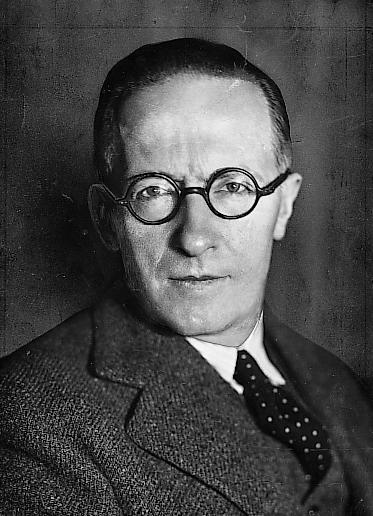Lectures pour une ombre
Book Details
| Title: | Lectures pour une ombre | ||||||||||
| Author: |
| ||||||||||
| Published: | 1917 | ||||||||||
| Publisher: | Imprimerie Chaix | ||||||||||
| Language: | French | ||||||||||
| Tags: | essay, military, non-fiction, World War I | ||||||||||
| Description: | Three accounts of Giraudoux's experiences during the First World War. [Suggest a different description.] |
||||||||||
| Downloads: | 75 | ||||||||||
| Pages: | 193  |
Author Bio for Giraudoux, Jean-Hippolyte

Hippolyte Jean Giraudoux (Oct. 29, 1882,—Jan. 31, 1944), was a French dramatist who wrote 15 plays, most initially staged by the actor-director Louis Jouvet and later internationally acclaimed. Giraudoux was also a prose writer and served France as a diplomat and government official.
Giraudoux was born in the village of Bellac and studied at the École Normale Supérieure. In his youth he traveled extensively — to Germany, Italy, the Balkans, Canada, and the United States, where he spent a year (1906-07) as an instructor at Harvard. Returning to France, he served in World War I, was twice wounded, and became the first writer ever to be awarded the wartime Legion of Honor.
His worldwide importance rests on such plays as Amphitryon 38 (1929; Eng. trans., 1938), Judith (1931), Tiger at the Gates (1935; Eng. adaptation of La Guerre de Troie n'aura pas lieu, 1955, by Christopher Fry), Ondine (1939; Eng. trans., 1961), and The Madwoman of Chaillot (1945; Eng. trans., 1949), which was published and produced posthumously. Giraudoux also wrote five novels, the best known being My Friend from Limousin (1922; Eng. trans., 1923) and Bella (1926; Eng. trans., 1927), and numerous short stories. He was one of France's outstanding essayists during the interwar years, best known for such literary studies as Racine (1930) and such political studies as Pleins Pouvoirs (Full Powers, 1939). At the start of World War II, he served as minister of information under Premier Édouard Daladier.
Giraudoux’s dramatic and narrative style is a rich and inimitable blend of allusive prose, allegory, fantasy, and political and psychological perceptions. He tempered tragic themes with rueful comedy, as though he wished to unite the contrasting qualities of Racine, Molière, Maeterlinck, and Baudelaire.
Source: discoverfrance.net
Available Formats
| FILE TYPE | LINK | ||
| UTF-8 text | 20230625.txt | ||
| HTML | 20230625.html | ||
| Epub | 20230625.epub | If you cannot open a .mobi file on your mobile device, please use .epub with an appropriate eReader. | |
| Mobi/Kindle | 20230625.mobi | ![1. Download the .mobi file into your computer’s Downloads Folder.
2. Rename the file from [8-digit number].mobi to [my title].mobi.
3. Connect your Kindle to your computer using the Kindle USB cable.
4. Open the “documents” folder in the Kindle directory and Copy/Paste
the renamed .mobi file into the “documents” folder.
5. Eject your Kindle. The file will then appear in the Kindle Main Menu
as a New item with the new renamed file name. Info](/images/info.jpg) | Not all Kindles or Kindle apps open all .mobi files. |
| PDF (tablet) | 20230625-a5.pdf | ||
| HTML Zip | 20230625-h.zip |
Kindle Direct (New, Experimental)
Send this book direct to your kindle via email. We need your Send-to-Kindle Email address, which can be found by looking in your Kindle device’s Settings page. All kindle email addresses will end in @kindle.com. Note you must add our email server’s address, [email protected], to your Amazon account’s Approved E-mail list. This list may be found on your Amazon account: Your Account→ Manage Your Content and Devices→ Preferences→ Personal Document Settings→ Approved Personal Document E-mail List→ Add a new approved e-mail address.
This book is in the public domain in Canada, and is made available to you DRM-free. You may do whatever you like with this book, but mostly we hope you will read it.
Here at FadedPage and our companion site Distributed Proofreaders Canada, we pride ourselves on producing the best ebooks you can find. Please tell us about any errors you have found in this book, or in the information on this page about this book.
